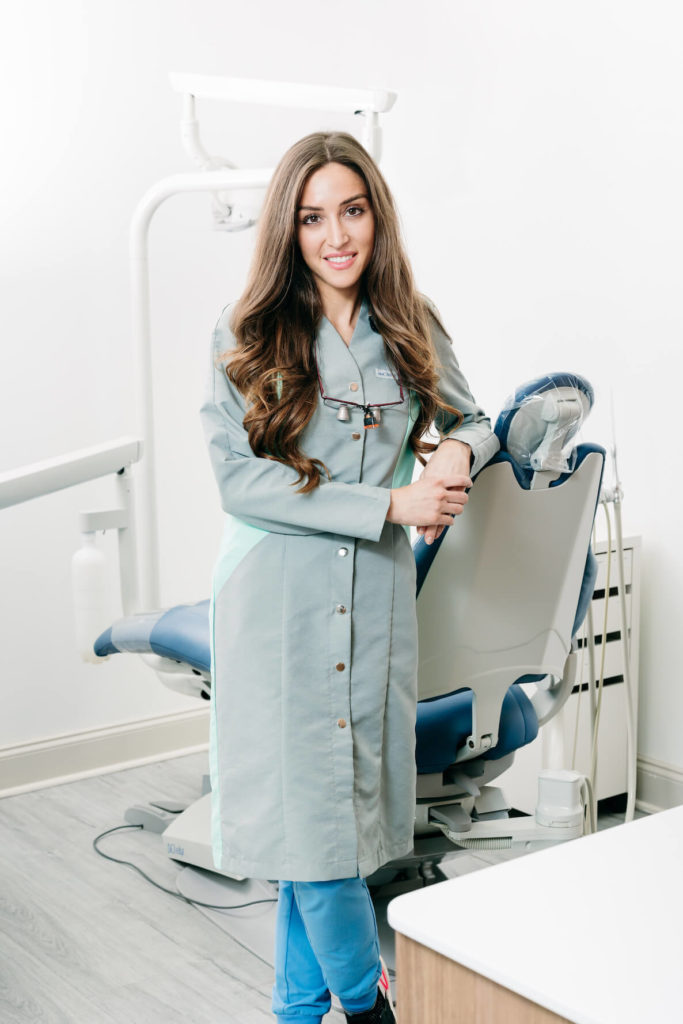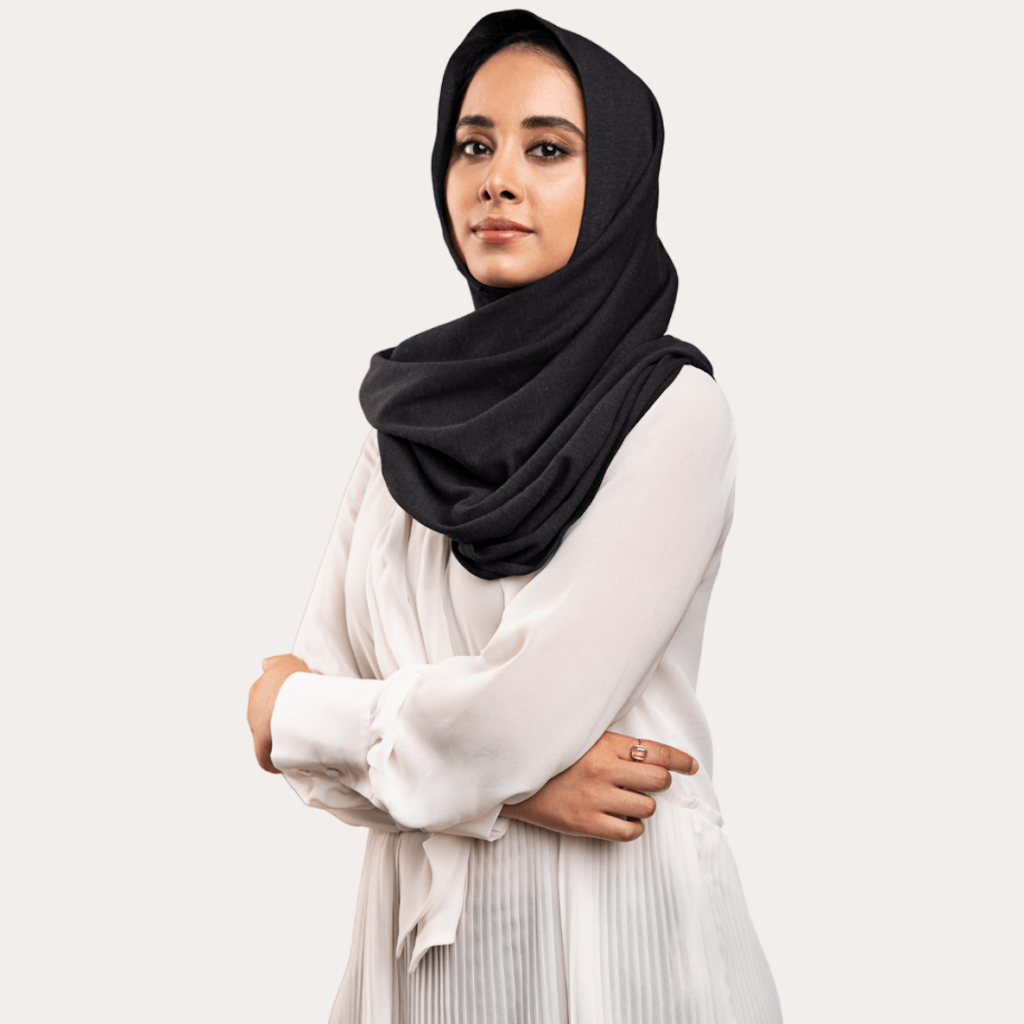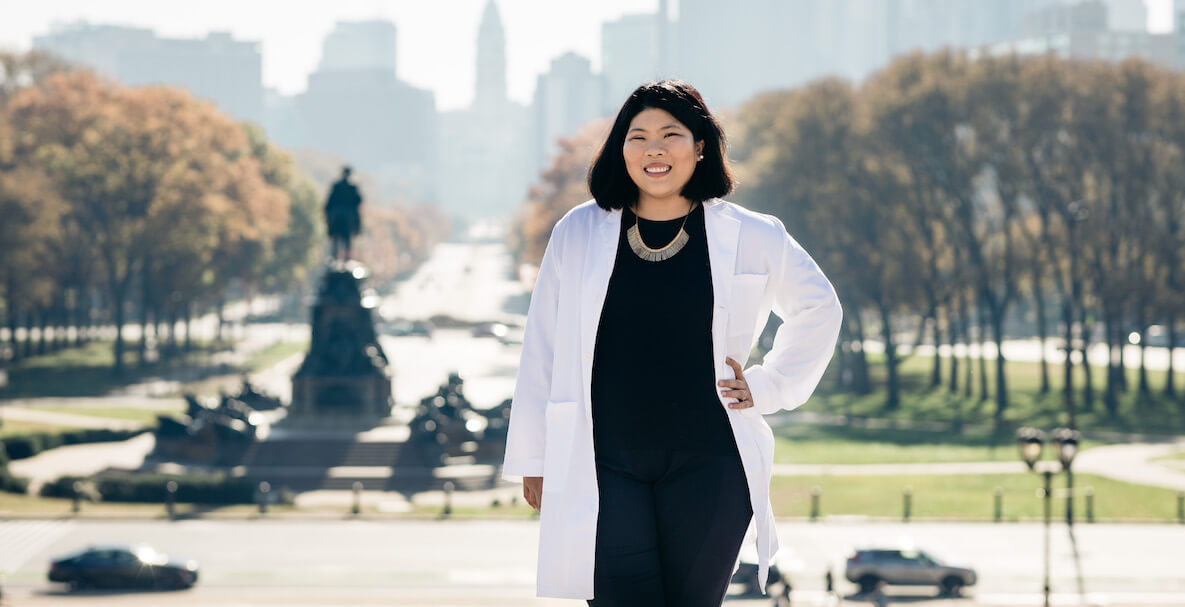For Beau Wangtrakuldee, it started out as just another summer night spent in a lab.
A PhD student studying chemistry at Northern Illinois University, she was working on an experiment for a private company that she hoped would lead to the development of a new anti-cancer drug. She was used to being there alone, absorbed in her work. She wasn’t worried about the risks associated with the chemicals she was using—after all, she had her lab coat to protect her if anything happened.
But then she accidentally knocked over a bottle of chemicals, which spilled onto her leg. Her coat was completely burned, and within seconds, Wangtrakuldee felt the chemical burn creeping over her skin. She ran to her office, stripped off her lab clothes and threw on the workout clothes she kept in her desk.
“The lab coat that was given by my employer at the time did not protect me,” she says. “I consider myself lucky.”
Though her leg was badly burned, she knew the damage could have been much worse. The chemicals she was working with can cause severe burns, eye irritation and respiratory complications. “The lab coat that was given by my employer at the time did not protect me,” she says. “I consider myself lucky.”
Wangtrakuldee decided she didn’t want to be “lucky” the next time there was an accident. She began searching online for a coat that would offer her better protection. But many of the sites that sell PPE only offer items that are designed for male bodies.
Lab coats and medical gowns are often shapeless, leaving them baggy on women’s bodies and preventing them from fitting properly. Wangtrakuldee recalls complaining about this issue with other female scientists, only to find that they too had been injured, either because the PPE they were provided with was low-quality or because they were rolling up too-long coat sleeves or making other adjustments to fit into PPE that wasn’t designed for their bodies. Over and over, she kept hearing about the same problems. “Those conversations with one or two girlfriends turned out to be 100 conversations,” she says.
Since she couldn’t find any PPE designed for female scientists, Wangtrakuldee decided she would create it. In 2018 she founded AmorSui, a company that designs fashionable PPE specifically made to fit women’s bodies.

The company now carries traditional PPE items, like surgical gowns, lab coats, masks and gloves as well as protective versions of ordinary clothing items, including pants, tops and hijabs, all made of high quality, antimicrobial, flame- and fluid-resistant materials. They’ve expanded to offer men’s clothes as well as women’s. All of the company’s products are named for scientists and doctors who were pioneers in their fields. The company’s name AmorSui means “self-love” in Latin because Wangtrakuldee believes that protecting your body is a form of loving yourself.
From idea to reality—to Covid pivot
Growing up in Thailand, Wangtrakuldee had always dreamed of starting her own business. She came from a family of entrepreneurs. Her grandparents started a moped distribution company that grew to be one of Thailand’s largest chains, and her parents started their own real estate firm. She dreamed of following in their footsteps, but didn’t know what business she wanted to start.
She moved to the U.S. to pursue a career as a scientist, hoping an idea would one day come to her. When the accident inspired her to start AmorSui, it felt like the pieces of her life were falling into place.
In 2015, Wangtrakuldee moved to the Philadelphia-area to start a postdoctoral fellowship in pharmacology at Perelman School of Medicine at the University of Pennsylvania. While there, she began meeting other entrepreneurs through the Penn Center for Innovation and the Wharton School of Business. This community pushed her to take the leap and take AmorSui from idea to reality.
RELATED: Two Swarthmore alums are using their tech skills to get PPE in the hands of those who need it most
Though her scientific training equipped her with a love of problem-solving, Wangtrakuldee didn’t have any experience in business or fashion before starting AmorSui. She thought she had a strong idea to solve the problem she was facing, but didn’t want to risk using her savings to launch a business that may fail.
That’s why she turned to crowdfunding. She raised $25,000 her first year, using sites like I Fund Women and other crowdfunding sources. With funds in hand, she worked with Philadelphia-based fashion designer Victoria Wright to design some of the brand’s earliest products. All of AmorSui’s products are made in the U.S. in women-owned factories located in Brooklyn, New York, and Allentown, Pennsylvania.

“I am very passionate about supporting my other women-led and -owned businesses,” Wangtrakuldee says. “Not only are these women experienced, professional, and the best at what they do, they also understand how best to produce products with women’s perspectives in mind whether it is the aesthetics, sizing, or comfort.”
When PPE shortages caused nurses to turn to wearing garbage bags for protection from the pandemic, Wangtrakuldee saw another problem her business could solve: Reusable PPE would allow nurses and doctors to stay safe, while reducing the amount of plastic waste created by hospitals.
Last year, an additional 25,900 tons of plastic waste was found in the oceans as a result of Covid-19. Researchers estimate that 87.4 percent of that waste came from hospitals, including disposable gloves, masks, medical gowns and Covid-19 testing kits.
“[PPE is typically] made of plastic. It’s the kind of plastic that you find in a plastic grocery bag,” Wangtrakuldee says. “I thought there’s a gap in the market for us to address.”
Wangtrakuldee knew from her time as a chemist that hospitals and labs often use disposable PPE because they don’t want to track the number of times an item has been washed by hand. (After a certain number of wash cycles, reusable fabrics wear down and offer users less protection.)
Last year, an additional 25,900 tons of plastic waste was found in the oceans as a result of Covid-19. Researchers estimate that 87.4 percent of that waste came from hospitals, including disposable gloves, masks, medical gowns and Covid-19 testing kits.
To fix this problem, she created an app that medical professionals can use to track washes for individual garments. Each piece of PPE comes with a QR code that needs to be scanned in order to log a wash. The app then notifies the user when an item reaches 85 to 90 percent of its allotted washes, so they can order more. The company released its first reusable gown alongside the app in August of 2020. They’ve since expanded to include other reusable items, including gloves and facemasks. Her innovation was lauded by Forbes and they named her one of their 2021 Female Founders to Watch.
Reusable gowns like AmorSui’s could lead to significant savings for hospitals. The price of a single, disposable surgical gown ballooned to $9 during the pandemic. AmorSui’s surgical gowns are priced at $80, which works out to about 80 cents per use.
Making safety personal
Since its founding in 2018, AmorSui has grown by 100 percent each year, and currently serves over 1,000 customers. Though Wangtrakuldee did not share exact sales figures, she did say the company is on track to grow by 100 percent this year again, in terms of both revenue and customer base. This year, Forbes reported that the company’s value was between $4 and $5 million. Her PPE can be found in university labs, ranging from University of Pennsylvania to University of California-Los Angeles. And it’s in several countries, including Canada and the Netherlands.
Hospitals, universities and other employers purchase the gowns in bulk and work with AmorSui to find qualified laundry partners. Wangtrakuldee is currently working on creating a full-service option where AmorSui would rent out gowns, pick them up for cleaning, keep track of the wash cycles and return them to their clients. Individuals can buy PPE directly from the company and wash them at home, following the detailed washing instructions that come with the product.
Inspired by the early feedback she got from her friends, Wangtrakuldee has continued to solicit opinions from her customers. Before designing the newest version of the company’s popular Emiline lab coat, AmorSui surveyed doctors and dentists to figure out how the product could best fit their needs.
“[Wangtrakuldee] is passionate about her company’s mission and ensuring her products bring quality, comfort, and satisfaction to her customers while providing a greater benefit to the community at large.”
She also welcomes design ideas from individual customers. When cancer rehabilitation specialist Alyssa Cole won one of AmorSui’s protective dresses in a contest, she found that the small size was too big for her. When Wangtrakuldee found out that the dress didn’t fit, she had it remade to match Cole’s measurements. Then, she used Cole’s measurements and those of several other women who wear extra small clothing, averaged the data and created an extra small sizing option for AmorSui.
Later, when the pandemic hit, Cole reached out to Wangtrakuldee to see if she would be interested in collaborating to create a line of reusable, antimicrobial gloves. At the time, Cole was studying to get her MBA from Thomas Jefferson University and she was interested in developing a product that was bacteria resistant, machine washable and touch-screen sensitive.
“As a physician, I remember working in Philadelphia when the pandemic first hit and thinking how I wished there was some way I could extend my outreach beyond the hospital doors to the rest of the community,” Cole says. “[Wangtrakuldee] is passionate about her company’s mission and ensuring her products bring quality, comfort, and satisfaction to her customers while providing a greater benefit to the community at large.”
Together, they created AmorSui’s Alice Hamilton antimicrobial gloves. The gloves are reflective, so they can be easily seen at night, light-weight, and they’ve been lab-tested to ensure that they kill 99.9 percent of bacteria and fungi. Like all of AmorSui’s products, they’re designed to be fashionable as well as functional.
“What I didn’t recognize approaching the pandemic is how much health care really relies on disposable PPE,” Wangtrakuldee says. “What we’re focusing on now is how to make the experience more enjoyable so that you can protect yourself and make your safety personal.”
![]() MORE ON WOMEN INNOVATING DESIGN
MORE ON WOMEN INNOVATING DESIGN
Header Photo: Beau Wangtrakuldee, founder of AmorSui




